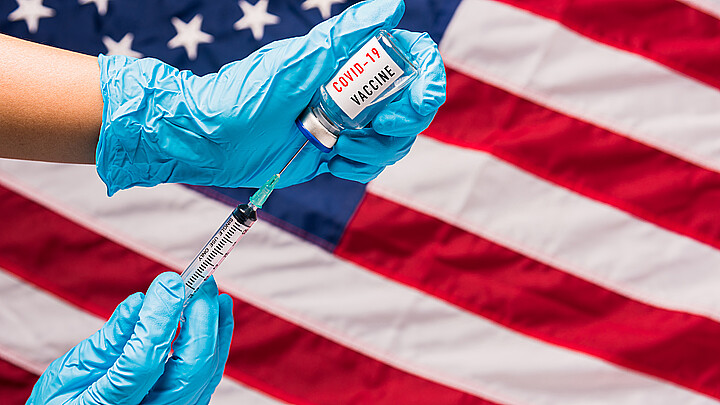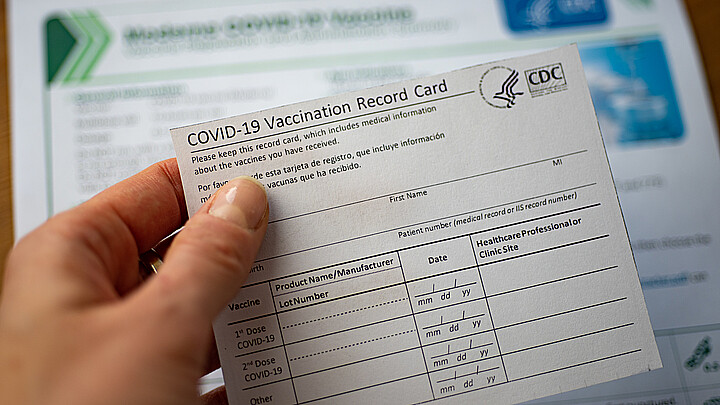Coronavirus
Moderna CEO warns vaccines may not protect against Omicron variant
Moderna CEO Stephane Bancel fears that the antibodies the vaccine provides could be up to eight times lower against the new strain.
November 29, 2021 5:13pm
Updated: November 30, 2021 2:23pm
While President Biden told Americans on Monday that the new COVID-19 variant was “cause for concern” but not a cause for panic, there appears to be a disagreement over the efficacy of the existing vaccines to prevent it or lessen its impact.
Biden's comments were delivered Monday in a televised statement just days after South African scientists announced the discovery of the Omicron variant.
"We have the best vaccine in the world, the best medicines, the best scientists, and we're learning more every single day,” Biden told the White House press corps. “And we’ll fight this variant with scientific and knowledgeable actions and speed. Not chaos and confusion."
While the Biden administration has not yet provided further guidance surrounding the new variant, the White House promised that lockdowns were not on the table.
The administration did urge Americans to get vaccinated against COVID-19, however — adding that Anthony Fauci believes vaccines provide some protection against the new strain, The Hill reported.
"If you are vaccinated, but still worried about the new variant, get our booster. If you aren’t vaccinated, get that shot. Go get that first shot," Biden said.
National Institutes of Health (NIH) Director Francis Collins also joined Biden and Fauci in calling on Americans to get vaccinated, saying vaccines offer the best protection against existing variants including Omicron.
"If there's a message I would like people to hear this morning is get the vaccinations and the boosters," Collins told MSNBC. "This is the best way to protect yourself against Delta, which is still very much with us in the U.S., and Omicron if it comes to the U.S., which it almost certainly will at some point."
Collins also warned that the new variant — labeled a variant of concern by the World Health Organization — could reach the U.S. within the next two to three weeks.
"We know that it is spreading quite rapidly in South Africa, so it probably is highly contagious," Collins said. "We don't know if it causes severe disease or mild disease — that's going to take a little while to sort out because it's still early days."
Presently, around 59 percent of the U.S. population is fully vaccinated, with 19 percent having received a booster. In recent weeks, the Food and Drug Administration (FDA) authorized both Pfizer and Moderna’s COVID-19 vaccine boosters for adults ages 18 or older.
Moderna CEO Stephane Bancel is not so optimistic, however, and warned on Monday that the current vaccines may not be effective against the new Omicron variant, the Washington Examiner reported. Although the company is still researching the new variant, he fears that the antibodies the vaccine provides could be up to eight times lower against the new strain.
"There are two key things that we don't know yet and will find out in [coming weeks]," Bancel told CNBC's Squawk Box. "One is vaccine efficacy. What is the impact of this new variant on the vaccine efficacy? And we should know that in around two weeks. ... Given the large level of mutation, it is highly possible that the efficacy of the vaccines, all of them, is going down."
While not much is yet known about the Omicron variant, it is believed to be more transmissible than other variants — with over 30 mutations on the spike protein.
Pfizer's CEO Albert Bourla confirmed that his company is also working to develop a vaccine that could directly target Omicron.
"Friday, we made our first DNA template, which is the first part of the development process of a new vaccine," Bourla said. "We would be able to have a vaccine in less than 100 days."










